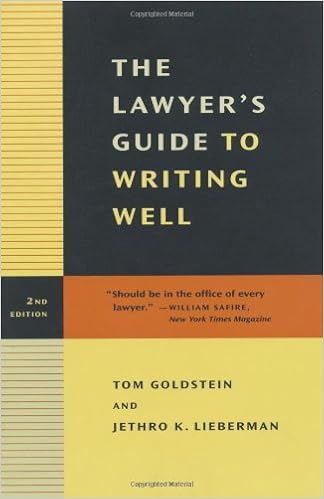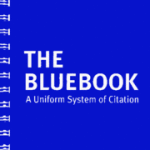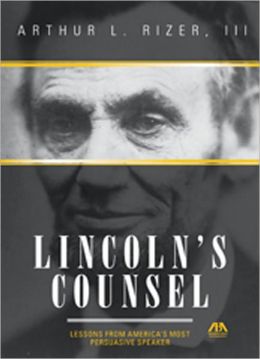Last week Prof. Fajans and Librarian Kathy Darvil ran their semi-annual workshop on how to research and write a seminar paper. Topics covered included sources for selecting your topic, sources for researching your topic, and how to effectively organize and write your paper. If you were unable to attend the workshop, you can access an online research guide which contains a recording of the workshop, links to and descriptions of all the research sources discussed, and the writing and research presentations. The online guide is available at guides.brooklaw.edu/seminarpaper. From the guide’s landing page, you will be able to access a recording of the presentation, Professor Fajans’ slideshow on how to write your seminar paper, and Kathy Darvil’s online presentation on how to research your seminar paper. If you should need further help selecting or researching your topic, please stop by the reference desk for assistance.
Category Archives: Legal Writing
Law and the English Language
 Last year, the Brooklyn Law Library added to its collection The Lawyer’s Guide to Writing Well (3d ed.) by Tom Goldstein and Jethro K. Lieberman (Call No. KF250. G65 2016). This critically acclaimed book “should be in the office of every lawyer” says William Safire of the New York Times. In its 286 pages, the authors demystify legal writing, outline the causes and consequences of poor writing, and prescribe easy-to-apply remedies to improve it. Reflecting changes in law practice over the past decade, this revised edition includes new sections around communicating digitally, getting to the point, and writing persuasively. It also provides an editing checklist, editing exercises with a suggested revision key, usage notes that address common errors, and reference works to further aid your writing. This guide is an invaluable tool for practicing lawyers and law students.
Last year, the Brooklyn Law Library added to its collection The Lawyer’s Guide to Writing Well (3d ed.) by Tom Goldstein and Jethro K. Lieberman (Call No. KF250. G65 2016). This critically acclaimed book “should be in the office of every lawyer” says William Safire of the New York Times. In its 286 pages, the authors demystify legal writing, outline the causes and consequences of poor writing, and prescribe easy-to-apply remedies to improve it. Reflecting changes in law practice over the past decade, this revised edition includes new sections around communicating digitally, getting to the point, and writing persuasively. It also provides an editing checklist, editing exercises with a suggested revision key, usage notes that address common errors, and reference works to further aid your writing. This guide is an invaluable tool for practicing lawyers and law students.
Chapters are: Why Lawyers Write Poorly — Does bad writing really matter? — Don’t make it like it was — The Practice of Writing — Ten steps to writing it down — Of dawdlers and scrawlers, pacers and plungers: getting started and overcoming blocks — The technology of getting it down: from quill pens to computers — Lawyers as publishers: words are your product — Getting to the Point — Writing persuasively for your audience: tell your audience the point — Writing the lead — Revising for Clarity and Luster — Form, structure, and organization — Wrong words, long sentences, and other mister meaners — Revising your prose — Making your writing memorable.
 Books and essays about the art of writing well go back a long time. In 1947, English novelist, essayist, journalist, and critic George Orwell (born Eric Arthur Blair 1903 – 1950) and author of Animal Farm: A Fairy Story and Nineteen Eighty-Four, his most famous works, wrote an essay titled Politics and the English Language. Although the essay addresses the decline of language in political and economic contexts, Orwell, in the closing paragraphs, offers rules that cover effective legal writing as well. They are:
Books and essays about the art of writing well go back a long time. In 1947, English novelist, essayist, journalist, and critic George Orwell (born Eric Arthur Blair 1903 – 1950) and author of Animal Farm: A Fairy Story and Nineteen Eighty-Four, his most famous works, wrote an essay titled Politics and the English Language. Although the essay addresses the decline of language in political and economic contexts, Orwell, in the closing paragraphs, offers rules that cover effective legal writing as well. They are:
- Never use a metaphor, simile, or other figure of speech which you are used to seeing in print.
- Never use a long word where a short one will do.
- If it is possible to cut a word out, always cut it out.
- Never use the passive where you can use the active.
- Never use a foreign phrase, a scientific word, or a jargon word if you can think of an everyday English equivalent.
- Break any of these rules sooner than say anything outright barbarous.
Episode 097 – Conversation with Prof. Heidi Brown
Episode 097 – Conversation with Prof. Heidi Brown.mp3
 In this podcast, Brooklyn Law School Professor Heidi Brown talks about her article, The Emotionally Intelligent Law Professor: A Lesson from the Breakfast Club, 36 University of Arkansas at Little Rock Law Review 273 (2014). The article examines the importance of teaching Emotional Intelligence (EI) as part of the law school curriculum and as a component of “professionalism.” In April 2016, Professor Brown joined the faculty at Brooklyn Law School as Director of the Legal Writing Program after serving as Associate Professor of Law at New York Law School, where she helped launch that school’s Legal Practice program. Before that, she was an Associate Professor of Legal Research and Writing at the Chapman University Dale E. Fowler School of Law in Orange, California. A prolific scholar and author on the importance of legal writing, she has published four books on predictive and persuasive legal writing and federal litigation, and other scholarly articles for law journals. Prof. Brown is working on a forthcoming book The Introverted Lawyer.
In this podcast, Brooklyn Law School Professor Heidi Brown talks about her article, The Emotionally Intelligent Law Professor: A Lesson from the Breakfast Club, 36 University of Arkansas at Little Rock Law Review 273 (2014). The article examines the importance of teaching Emotional Intelligence (EI) as part of the law school curriculum and as a component of “professionalism.” In April 2016, Professor Brown joined the faculty at Brooklyn Law School as Director of the Legal Writing Program after serving as Associate Professor of Law at New York Law School, where she helped launch that school’s Legal Practice program. Before that, she was an Associate Professor of Legal Research and Writing at the Chapman University Dale E. Fowler School of Law in Orange, California. A prolific scholar and author on the importance of legal writing, she has published four books on predictive and persuasive legal writing and federal litigation, and other scholarly articles for law journals. Prof. Brown is working on a forthcoming book The Introverted Lawyer.
Research & Citation Review Workshops
In anticipation of the first year Research and Citation Quiz, the Library will offer two review workshops.
 The workshop on Bluebooking with Success will be offered twice; you may attend either session. Please bring your Bluebook!
The workshop on Bluebooking with Success will be offered twice; you may attend either session. Please bring your Bluebook!
Tuesday, October 20, 2015, 4:00pm – 5:00pm, Room 601
Thursday, October 22, 2015, 5:00pm – 6:00pm, Room 503
 You may bring your research questions to this Question & Answer Workshop. We will also go over some sample quiz questions.
You may bring your research questions to this Question & Answer Workshop. We will also go over some sample quiz questions.
Monday, October 26, 2015, 5:00pm – 6:00pm, 7th floor Moot Court Room
Looking forward to seeing you at these timely and helpful research & citation review sessions.
Writing Competion for Securities Law Students
Brooklyn Law School students interested in competing for cash prizes in connection with Securities Arbitration and Securities Law can enter the James E. Beckley Securities Arbitration and Law Writing Competition being sponsored by the PIABA Foundation. The mission of the PIABA Foundation is to promote investor education and to provide the public with information about abuses in the financial services industry and the securities dispute resolution process. The Beckley competition is open to all law students. Eligible topics include any aspect of securities law, securities arbitration, the Federal Arbitration Act, or the FINRA Code of Arbitration. Winners get their submissions published in the PIABA Bar Journal and receive cash prizes for first place ($1,000), second place ($750), and third place ($500). The deadline for entries is September 19, 2014.
Episode 090: Conversation with Gideon Martin
Episode 090: Conversation with Gideon Martin.mp3
This podcast interview of Gideon Martin, Brooklyn Law School Class of 2014, focuses on his article Allergic to Equality: The Legislative Path to Safer Restaurants, 13 Appalachian Journal of Law 79 (2013). Gideon received his J.D. degree this year graduating with honors. While attending BLS, Gideon was selected for the law school’s competitive Edward V. Sparer Public Interest Fellowship and was the recipient of a Peggy Browning Fund Fellowship for work on labor and employment issues. Most recently, he spent the summer of 2013 working at the Major League Baseball Players Association. While at BLS, he interned for United State Magistrate Judge Cheryl Pollak of the Eastern District of New York. He was also a member of the Moot Court Honor Society and served as Notes and Comments Editor on the Journal of Law and Policy.
Student Writing Competition – First Prize $10,000
 Have a particular legal issue you are keen on? Interested in writing about it? If so, then submit your paper to be considered for the annual Brown Award given by the Judge John R. Brown Scholarship Foundation.
Have a particular legal issue you are keen on? Interested in writing about it? If so, then submit your paper to be considered for the annual Brown Award given by the Judge John R. Brown Scholarship Foundation.
The Award is in recognition of Excellence in Legal Writing in American Law Schools. There is no limitation as to topic; only that the writing must be on a legal subject.
Any student wishing to submit a paper must have a letter of recommendation from a faculty member. Specific details regarding the competition may be found here.
Some topics from last year’s winners.
First Place: Information Traps
Second Place: Beneath the Surface of the Clean Water Act: Exploring the Depth of the Act’s Jurisdictional Scope of Groundwater Pollution
Third Place: Lien on Me: The Survival of Security Interests in Revenues from the Sale of an FCC License
Seminar Paper Workshop
![]() On Thursday February 6, Professor Elizabeth Fajans and Librarian Kathy Darvil will host a workshop on how to effectively research and write your seminar paper. The workshop is from 4-5:30 and is located in Room 602. Topics covered included sources for selecting your topic, sources for researching your topic, and how to effectively organize and write your paper.
On Thursday February 6, Professor Elizabeth Fajans and Librarian Kathy Darvil will host a workshop on how to effectively research and write your seminar paper. The workshop is from 4-5:30 and is located in Room 602. Topics covered included sources for selecting your topic, sources for researching your topic, and how to effectively organize and write your paper.
If you are unable to attend the workshop, there is no need to fear. Kathy Darvil created an online research guide to support the seminar. The guide is available at guides.brooklaw.edu/seminarpaper. From the guide’s landing page, you will be able to access a recording of this year’s presentation, Professor Fajan’s slideshow on how to write your seminar paper, and Kathy Darvil’s online presentation on how to research your seminar paper. Also listed and described on the guide are all the resources (as well as several others) that were discussed in the workshop. If you should need further help selecting or researching your topic, please stop by the reference desk for assistance.
Gettysburg Address: 150th Anniversary
On November 19, 1863, Abraham Lincoln spoke at Gettysburg, Pennsylvania, site of the bloodiest battle of the American Civil War in July of that with more than 7000 killed. Gettysburg attorney David Wills and local officials planned an elaborate dedication ceremony for a national cemetery for the fallen soldiers, inviting state governors, members of Congress, and cabinet members, and prominent orator Edward Everett as the keynote speaker. At the last minute, Willis asked President Lincoln to make a few remarks probably thinking he would not attend or simply deliver a few platitudes. But President Lincoln delivered a two-minute speech that redefined the nation. In a mere ten sentences of about 270 words, Lincoln delivered one of the most important political speeches in American history, one often called the Second Declaration of Independence.
Fourscore and seven years ago our fathers brought forth on this continent a new nation, conceived in liberty and dedicated to the proposition that all men are created equal.
Now we are engaged in a great civil war, testing whether that nation or any nation so conceived and so dedicated can long endure. We are met on a great battlefield of that war. We have come to dedicate a portion of that field as a final resting-place for those who here gave their lives that that nation might live. It is altogether fitting and proper that we should do this.
But in a larger sense, we cannot dedicate, we cannot consecrate, we cannot hallow this ground. The brave men, living and dead who struggled here have consecrated it far above our poor power to add or detract. The world will little note nor long remember what we say here, but it can never forget what they did here. It is for us the living rather to be dedicated here to the unfinished work which they who fought here have thus far so nobly advanced. It is rather for us to be here dedicated to the great task remaining before us–that from these honored dead we take increased devotion to that cause for which they gave the last full measure of devotion–that we here highly resolve that these dead shall not have died in vain, that this nation under God shall have a new birth of freedom, and that government of the people, by the people, for the people shall not perish from the earth.

BLS LL.M Grad Authors Bilingual Antitrust Blog
Thibault Schrepel, a 2013 LL.M Graduate of Brooklyn Law School, has published the first Antitrust Letter, a new monthly series of articles written in both French and English.
According to Mr. Schrepel, each month’s article will analyze major changes within United States antitrust law and legal precedents, whilst contrasting and occasionally drawing parallels to European antitrust legal issues.
Antitrust Letter #1 discusses the DOJ v. Apple trial, calling it “one of the year’s biggest antitrust trials”
Other topics in this issue include –
Framing the class action: American Express v. Italian Colors Restaurant
Tesla and direct sell networks
Questioning “Pay-for-delay deals”: FTC v. Actavis
Patent-trolls hunting is open
